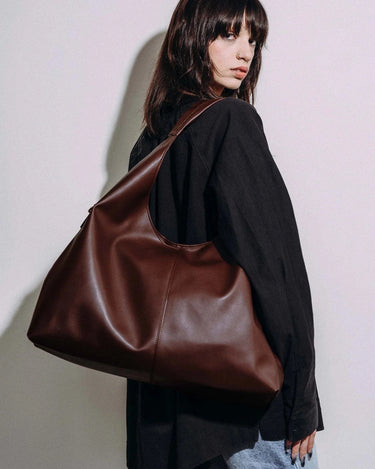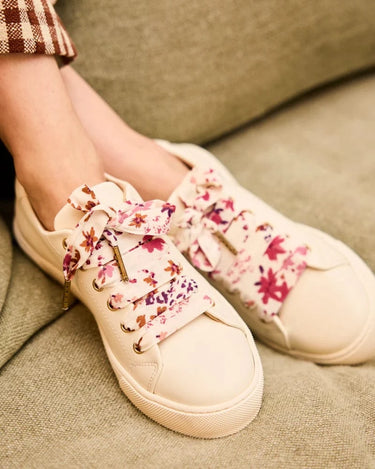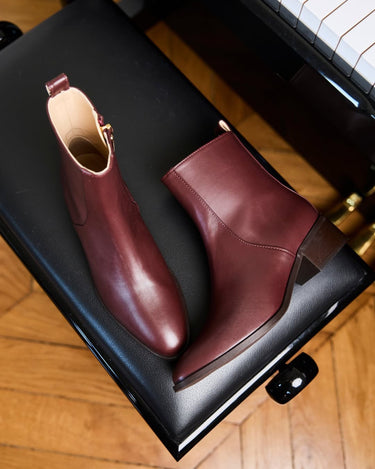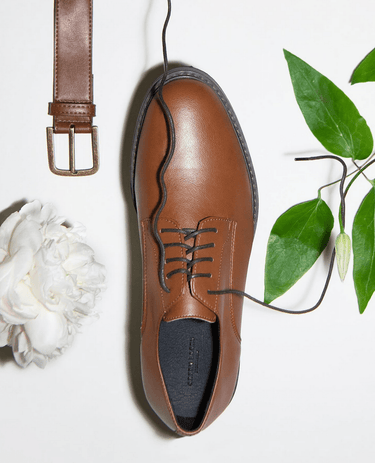World Environment Day: How Fashion Is Making Progress For The Planet
World Environment Day, which falls on 5th June, is another reminder of the urgency around the climate crisis - and the fashion industry has been asking itself burning questions about its own role in the climate breakdown for more than a few seasons. Despite all its talk of organic materials and recycling schemes, fashion is still considered one of the most environmentally intensive industries on the planet. Its impact on everything from water pollution and greenhouse-gas emissions to modern slavery and cruelty to animals is reason enough to write fashion off when it comes to positive developments for the environment. But a few tenacious brands are changing this.
Small runs, big progress
Quite possibly the root of fashion's environmental problems lies in overproduction, damaging the planet on multiple fronts. Workers in developing countries are being forced to pull 14-hour days to meet production demands so that consumers can enjoy a constant influx of products on store shelves, while the fruits of their labour languish in landfill: 92 million tonnes of textile waste is produced every year, generating greenhouse-gas emissions and polluting communities. This can be combated by smaller production runs, especially working with made-to-order models. Minimising waste and avoiding sending textiles to landfill, made-to-order is what it sounds like: designs being manufactured when ordered, as opposed to sitting pre-made in a warehouse, ready to be shipped at the click of a button.
One brand that works with pre-ordering is small-batch handbag brand FRIDA ROME, offering exquisite accessories made from fruit leathers made in limited production runs. "Pre-order means that you pay for your bag, your order is confirmed, and a bag is secured for you in our next batch," explain founders Natalie Deana and Rebecca Joy. "When we offer pre-orders, the batches generally only take around 4-6 weeks in production. If we’re between batches, this means you may be waiting for your order for up to 8 weeks." The rule-breaking founders believe that their bags are worth waiting for, and a legion of fans agrees, questioning fast fashion's "I want it now" mentality. Waiting for something good? If it's also a win for the planet, count us in.
A new way forward for Made in China
When you hear "made in China", you don't immediately think "sustainability" - as a major producer of fast fashion, China has become synonymous with large production quantities and cheaply made designs. But ethical fashion is on the rise in China too, with some vegan brands leading the charge. Specialist watch label Votch, which has expanded into bags and other accessories, is among those ushering in a new era of Made in China by proudly working with a factory in Shenzhen. "The manager believed that we wouldn't put 'made in China' on our watches – but we are proud of where our product is made and the team we work with," says founder Laura Way. She often visits the brand's factories in Shenzhen, and makes sure to enjoy some of the factory owner's wife's tasty plant-based dishes when she does!
Another vegan entrepreneur working to raise China's ethical-fashion profile is Joey Pringle, founder of vegan factory Veshin - which Votch also partners with. This factory, which works exclusively with vegan materials, operates by five standards: sustainability, transparency, use of new-generation materials, giving back, and wellness. "Ultimately, we only want to be working with brands who align with these values," says Pringle. Alongside his partner Hongliang Yu, Pringle uses the United Nations sustainability goals in Veshin's framework, as well as always being mindful of animal protection and sustainable manufacturing. "This is why we work with new-generation materials, as well as creating a workplace for our workforce where they are paid a good salary so that they can sustain their lives," says Pringle.
A ray of hope: solar-powered production
You'd have to have lived under a rock to have missed the conversation on fossil fuels and why it's crucial to move away from our society's over-reliance on them. Releasing devastating amounts of greenhouse gases into the atmosphere, fossil fuels are a constant threat to the planet's well-being - and so is any large-scale production that is dependent on them, including the mass machine that is the fashion industry.
Solar-powered production, on the other hand, albeit not without environmental impact, reduces emissions significantly. One brand that's aware of this is sustainable fashion veteran Komodo, who work with a solar-powered factory in Kathmandu. This attention to environmental impact is what has made Komodo a leader in ethical fashion. Newer brands, such as Bibico, also implement solar solutions. The UK-based label's main supplier in India has installed solar panels to fuel the factory, slashing their emission potential.
Plastic is not fantastic
Vegan fashion, albeit a necessary improvement for the planet, needs to face the elephant in the room: the use of petroleum-derived synthetics. Dependant on fossil fuels, synthetic fabrics also shed microplastics into waterways when washed. Vegan fashion - especially animal-free leather - has often been depicted as a culprit. But material innovation is stepping up to offer a solution. Natural Fiber Welding has created MIRUM, a bio-based vegan material made from plant waxes and oils that have been welded together without the use of any plastic components. This material can be biodegradable, and is used for sturdy yet supple vegan leather accessories.
One vegan fashion label founder who was excited to stumble across MIRUM is Melina Bucher. "I found this company over two years ago,” she recalls. “At that time, there was nothing more than small samples of a material and a very strong vision: a material that is 100% bio-based, with only natural inputs. Plants, not plastics. I was immediately smiling, as this was exactly what I was looking for!”
MIRUM has also caught the eye of handbag brand Svala, who told us: "We chose to use MIRUM in the Svala line as it is a beautiful, durable material that has a very low carbon footprint. MIRUM is currently the only vegan leather alternative on the market that is USDA certified as 100% bio-based. It does not contain any plastic or synthetics. We have been searching for a plastic-free vegan material that resembles luxury leather for a long time and were unable to find exactly what we were looking for until we discovered MIRUM. We love that MIRUM does not require any water during the manufacturing and dyeing process and at the end of its life, it can be recycled into new MIRUM or ground up and returned safely to the earth."
This World Environment Day amid all the environmental doom and gloom, it's easy to think that all is lost. But as innovators are working behind the scenes to make progress, new processes emerge and systems slowly change, fashion might yet harbour some hope.
By Sascha Camilli
About Sascha
Sascha Camilli is a vegan writer, speaker and activist. Her book Vegan Style is out now on Murdoch Books. For more about Sascha, you can read our interview with her or sign up to her newsletter Kind of Wild.
Cover image by Klaus Steinberg via Unsplash.
For more great content like this in your inbox, sign up to our newsletter, and save 10% off your next purchase, plus great savings throughout the year.
Related Articles






















































































































